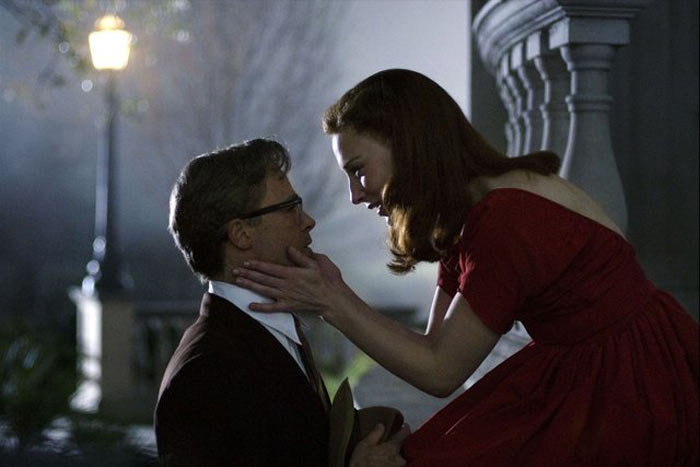The Curious Case of Benjamin Button
Dir. David Fincher
Reviewed by Abe Rose
3 1/2 out of 5 stars
David Fincher’s “The Curious Case of Benjamin Button” has a sentimental take on the thesis of last year’s Best Picture winner, “No Country for Old Men.” When the broken down Sheriff Bell comes to Ellis in “No Country,” needing comfort and support, Ellis doesn’t give him any. “You can’t stop what’s comin’,” he tells him. Fincher’s film spends nearly three hours meditating on that same idea, but instead of dousing the audience with a cold bucket of harsh reality, it instead brings warm sentimentality to soften the blow.
However, no matter how sweet or moving the movie is, we know what will happen even to the point of fatalism. If a man is to age backwards, as in Benjamin Button’s curious case, then we can deduce what will be his fate, right from the beginning. He has nowhere to go but get younger. Benjamin wishes to be able to stop time, but he cannot “stop what’s comin’.” No one can.
Benjamin begins as a Gollum-like creation. He is born an aged and wrinkled baby, suffering from arthritis and other ailments. As he grows older, the CGI character is replaced by the younger Brad Pitt, who takes on the role of the ill-fated, backward-aging man. He is born on the day that World War I ended, raised in New Orleans and adopted into a nursing home. Because of assumptions that he actually is an old man who lived a long life, and because he experiences everything with the curiosity of a child, there is an innocent quality about him. He has a Forrest Gump-like blank slate.
It’s hard not to think of “Forrest Gump” when watching this film. Screenwriter Eric Roth penned the screenplay for “Forrest Gump” and fills “The Curious Case of Benjamin Button” with the same kind of pathos. Both films have a deep love for the South, they both span American history, have big things to say about fate, involve strong “Mama” characters, involve a romance between a simple-minded man and a constantly-changing woman, make heavy use of undetectable special effects … the list goes on and on.
This is the kind of movie that would be best viewed if one had not previously seen “Forrest Gump.” Perhaps the most notable difference is that Fincher’s film has a darker color palette than “Gump,” but that’s just about it. Both films explore the same thematic territory dealing with fate, and they both have the same plot structure. Sure, some may argue that Benjamin Button was based on an F. Scott Fitzgerald short story that was written before “Gump,” but the book and the movie are seldom the same thing. Like “Gump,” this is the kind of movie that the Academy voters love. It is a marvelous technical achievement, the acting does all that we would expect of such roles and it has a strong sentimental love story. If there is one crucial element that is missing, it is this: the movie seems to focus more on the condition than the character, and the result makes Benjamin Button and his curious case, somewhat hollow.
Rated PG-13 for brief war violence, sexual content, language, and smoking.







